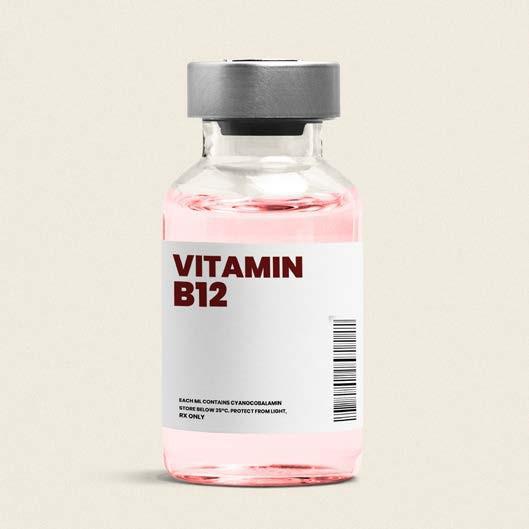Identification of Vitamin B12 Deficiency in Indian Vegetarians

Vitamin B12 is important in DNA synthesis and its role is mainly noticed in blood cells and nervous tissue cells.
Vitamin B12 deficiency is caused by
- Dietary deficiency - Chiefly in vegetarians, since B12 does not have a plant based source.
- Auto immunity - Anti parietal cell antibodies or anti intrinsic factor antibodies or both
- Rare conditions - Hypochlorhydria - B12 does not become free from salivary binder requiring low pH, malabsorption (Crohn’s disease, celiac disease) and genetic deficiency of transporter-transcobalmin II
Problem
The proportion of humans adopting a plant-based lifestyle is on the rise worldwide. Benefits on economics, climate and health have been documented and projected to continue over the next few decades. Apart from its sustainability, well-planned plant- based diets are nutritionally complete for human beings of all ages, with vitamin B12 being the only micronutrient not found in plants. Humans adhering to a plant-based lifestyle can obtain the vitamin B12 from foods fermented with bacteria that naturally produce vitamin B12, foods fortified with vitamin B12 and over-the-counter supplements. However, the high prevalence of vitamin B12 insufficiency in vegetarians across India suggests that food literacy programmers are not yet meeting the needs of the current dietary shift.
B12 deficiency is identified by measuring plasma vitamin B12, holotranscobalamin (Holo-TC), homocystyeine (HCy) and methylmalonic acid (MMA). Plasma vitamin B12 alone is not a sensitive and specific indicator for the reliable diagnosis of vitamin B12 deficiency. Moreover, cutoffs are defined in B12 replete western populations. We (Naik et al) examined vitamin B12 status in a cohort of 119 young, healthy unsupplemented vegetarian Indian graduates. Using standard cut-off values for the assessment of vitamin B12 status we determined that 50 % were vitamin B12 deficient, 50–70 % exhibited low plasma holo-TC and 70–90 % presented elevated plasma total Hcy (tHcy). All participants in this study were asymptomatic of clinical vitamin B12 deficiency and hence are classified as sub-clinical vitamin B12 deficient subjects. We find similar situation in all geographical part of India.
We propose (Naik et al, Brit J Nutr, 2013) the use of a combination of biomarkers and cut-off values of 100 and 19·6 pmol/l for plasma vitamin B12 and holo-TC, respectively, and values of tHcy of 17·6 and 27 µmol/l for Indian vegetarian females and males, respectively.
Some special populations need extra caution. This includes the diabetic patients receiving metformin, the elderly and women in reproductive age attempting to conceive or who are pregnant. It is highly recommended that vegetarian and vegan women in reproductive age take a vitamin B12 supplement before conception as well as during pregnancy and breast-feeding to ensure sufficient supplies of the micro-nutrient to the baby Vitamin B12 deficient subjects need to be provided high dose ( 5 mg/day ) for 2 weeks and then maintain on daily intake of natural vitamin B12 (400 mL of milk/milk products) or 1.6 microgram of synthetic B12.



